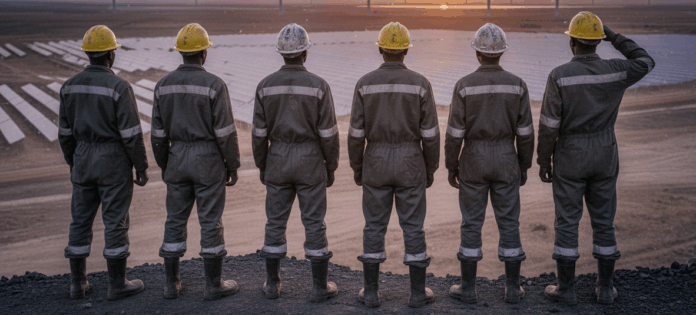A call for the creation of a Just Transition Worker Fund has reignited debate over how South Africa can pursue decarbonisation without deepening inequality. PBS Development Consulting, the firm behind the proposal, argues that a climate transition that leaves vulnerable workers and municipalities behind risks reproducing the same patterns of exclusion that have defined South Africa’s political economy for decades.
The consultancy’s report highlights what it calls a “growing social fault line” in the country’s energy and industrial transition. While the policy framework for climate change is well developed, its implementation is set back by limited local government capacity, underfunded municipalities, and a weak social protection net. PBS believes a dedicated worker fund could offer structural relief, supporting retraining, municipal adaptation, and livelihoods in regions most exposed to the transition away from coal and carbon-intensive industries.
“Climate change acts as a poverty multiplier,” the report warns, “magnifying pre-existing inequalities and creating new vulnerabilities across the labour market.” It identifies six sectors most affected by the transition (energy, mining, agriculture, automotive manufacturing, construction, and waste management). Workers in these sectors, particularly those in informal or precarious employment, remain largely excluded from formal just transition frameworks.
PBS proposes that the Just Transition Worker Fund should be structured to give differentiated access across municipalities, recognising that rural regions, especially coal-reliant areas in Mpumalanga and Limpopo, lack the technical and administrative capacity of metropolitan centres.
Without this amendment, the fund could simply replicate the unequal allocation of resources already seen in other development programmes. The consultancy also calls for gender- and disability-responsive retraining pathways to ensure that the energy shift benefits those most marginalised in the current labour market.
These proposals come as South Africa faces mounting pressure to accelerate its energy transition. The country’s $8.5 billion Just Energy Transition Partnership (JETP) with international partners has focused primarily on the power sector, yet analysts warn that the social dimensions of the transition are underfunded. The PBS proposal effectively extends the conversation beyond decarbonisation to the question of who pays the social cost of climate ambition.
The consultancy’s emphasis on municipal capacity also carries strategic weight. Many mining operations depend on local governments for water, roads, and waste services. As municipalities face climate risk exposure, companies may encounter infrastructure bottlenecks and reputational risk. A targeted fund that strengthens local governance could therefore serve both public and private interests, aligning social protection with operational resilience.
Still, questions remain about financing. Should the fund draw from carbon taxes, climate finance facilities, or corporate contributions? PBS Development Consulting does not prescribe a model, but it argues that equitable funding should accompany equitable governance. Worker and community representatives must hold seats at the decision-making table, not merely be consulted. “The lived experience of affected communities must shape policy,” the report notes.
If adopted, the Just Transition Worker Fund could reshape South Africa’s climate governance architecture. It offers a social security policy for the energy transition that integrates justice, labour, and development.




